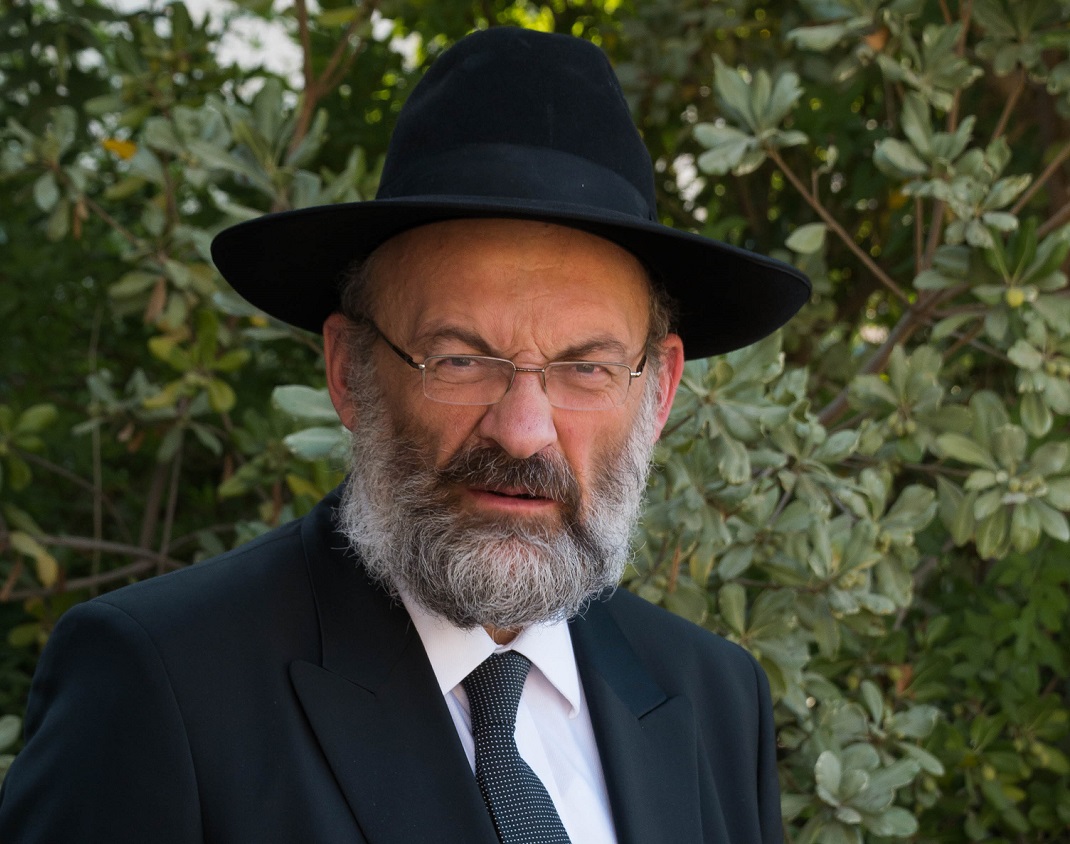Time to be a Deeper Jew

Our response in the face of anti-Semitism should be to be more Jewish

Calls to “gas the Jews” are defended as protected speech; leaders of the academic world unabashedly insist that advocating the genocide of the Jewish People is acceptable conduct. A few months ago, no one would have dreamed that such virulent anti-Semitism would sprout up. Suddenly, even the places where Jews have always felt at home are starting to feel like 1930s Germany.
As history has taught us, anti-Semitism isn’t the result of anything Jews do. They don’t hate us for what we do; they hate us for who we are. It’s always been that way. Rashi in Daniel 11:17 says Antiochus sought to kill everyone who called himself a Jew. Anti-Semites simply can’t tolerate the existence of a Jew in the world.
That leads us to ask a basic question we may never have asked before: What is a Jew? Not in the halachic or genealogical sense; rather, what is the essence of a Jew that the anti-Semites can’t stand?
To answer this question, we have to go back to the birth of the Jewish nation in Mitzrayim. The beginning of the Jewish People was far from picture-perfect. The Ramban in parshas Bo writes that the Jews there had fallen to a dismal spiritual state. They even abandoned the mitzvah of bris milah and worshipped avodah zarah. They did not deserve to leave Mitzrayim; yet, says the Ramban, they called out to Hashem, and He heard their prayers.
This disgraceful beginning reveals the essence of the Jewish character. Though the Jews of Egypt had forsaken the mitzvos, they still prayed. They prayed because it was self-evident to them that as inescapable as their predicament seemed, the facts on the ground didn’t tell the whole story. They knew beyond a doubt that Hashem governed the world, and even the immutable laws of nature could be suspended if Hashem wished. While everything around them indicated that their hope was futile, they understood that there is more to the world than meets the eye.
A Jew looks beyond the world’s external facade and understands that there is more to it than mere physical existence. At its most basic level, this trait is manifest in even our most distant brethren. Every time a conceptual ideal is put forward for governing society, there are Jews behind it. Jews shun a purely pragmatic approach to life, because they instinctively understand that the world has a purpose beyond making money and having a good time.
A Jew abhors superficiality. A Jew looks deeper and finds spiritual significance in what others find earthly and mundane. Anti-Semites hate us for who we are; our answer to their hatred is to be more Jewish, and try to look more deeply at the world around us. While that sounds abstract, this avodah is actually extremely practical. Let us explore two ways we can do so in our everyday lives.
One area where we can work on this avodah is bein adam l’chaveiro. Everyone recognizes the necessity of character refinement, but most view this enterprise superficially. All the books about interpersonal relationships are concerned with a very practical endeavor: How to get along better with spouses, friends, and coworkers.
But the Jewish approach views bein adam l’chaveiro not just as a way to get along with others, but as the path to Olam Haba. Every morning after birchos haTorah, we recite the list of good deeds whose fruits are enjoyed in this world, while their principal reward remains intact in the world to come. Most of those mitzvos are bein adam l’chaveiro. Being nice to others is a prerequisite to harmonious living in this world. But how does that bring you to the spiritual delights of the world to come?
The Jewish approach to character refinement is much deeper than behaving nicely. It’s about refining our base qualities, and becoming better and bigger people. We endeavor not only to do acts of kindness, but to become people who live for others. We try not just to control our anger, but to become people who aren’t incensed by petty insults to our honor. We reap the fruits of our behavior in This World, but it’s in the World to Come that we are rewarded for our spiritual transformation. It’s important to master techniques for controlling our anger and acting amiably with others, but being Jewish requires us to refine not only our behavior, but also ourselves.
Another area to work on looking deeper is our response to the blessings Hashem gives us. What should you do when Hashem gives you something you desperately needed? Of course, you have to express your gratitude to Hashem. Hakaras hatov, writes Chovos Halevavos, is the foundation of avodas Hashem. But our gratitude shouldn’t be limited to a simple “thank you.”
I learned this lesson from Rav Wolbe. For years, every time we finished learning together, I thanked him. One day he responded, “Don’t say thank you.” I was astounded. He took time every week out of his packed schedule to teach me wisdom I’d never encountered anywhere else. He had changed my life immeasurably. Why should I not say thank you?
I asked him, and he explained: “I learned with Rav Hutner for well over a decade, and I never said thank you. I showed him I was thankful, but I never used those two words. That’s because I understood that everything he gave me wasn’t a gift for me to put in my pocket and take home. It was for me to work with, grow with, develop further, and ultimately transmit to others.”
I don’t recommend anybody actually stop saying “thank you.” Rav Wolbe’s point was that we should not treat the gifts we receive from others or from Hashem superficially. If Hashem gives us health, parnassah, or children, our response must not be simply to thank Hashem; we have to use His gifts to serve Him better and help others serve Him as well.
When a child is born, everyone understands Hashem wants long-term avodah from the parents: to raise the child in the right path. The same is true with everything Hashem gives us. Say you buy a car. Why did Hashem give you the car — for you to say “Thank You, Hashem!” and drive away? The gift contains a whole world of avodah. You can use the car to save time and learn more Torah, to help others, to work on anger in the frequent scenarios that naturally induce road rage…. There’s so much more than the physical machine you see at first glance.
We usually only look deeper when what meets the eye is unpleasant. If something bad happens, we say “gam zu l’tovah.” We don’t see the good now, but Hashem’s plan is beyond our understanding. Countless people struggling with a difficult situation have come to me to ask, “What does Hashem want from me?” They understand that Hashem wants a special avodah from them.
But no one ever came to me after something good happened to him to ask, “What does Hashem want from me?” It never crosses our mind that the gift Hashem gave us contains more than we see at first glance. Even when what meets the eye is pleasant, a Jew has to look deeper, and see the world of avodah beneath the surface.
Our response in the face of anti-Semitism should be to be more Jewish. Let’s focus on these two areas — character development, and using Hashem’s gifts to serve Him — and train ourselves to look more deeply at the world around us. If we do that, we’ll discover that being a Jew is more demanding, and more rewarding, than what meets the eye.
—Prepared for print by Rabbi Eran Feintuch
(Originally featured in Mishpacha, Issue 992)
Oops! We could not locate your form.







